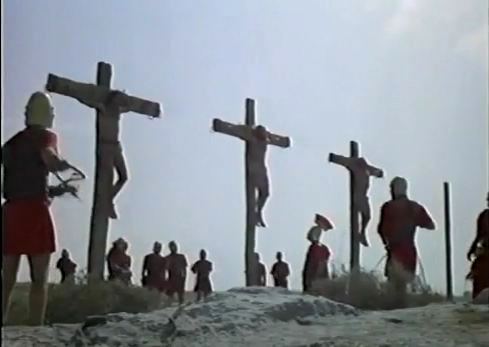Schadenfreude
I just heard a word I had never heard before the other day, Schadenfreude. It is defined as enjoying other people’s mishaps and misery. I can relate to that as often we like to see a person make mistakes or totally fail, especially someone who we think may deserve it. That is part of the physical self we should try and overcome or repent of, as it could lead to a greater sin in the future. Some failures of others seem funny to us, but may be a significant event in that persons life. Personally my weakness is judging too harshly which is in the same category I guess.
Past Feeling
This new word made me think instantly at the words of the Bible and Book of Mormon, “Past Feeling.” A journey towards disobedience to sin to evil to becoming past feeling is frightening to me. But, shouldn’t we understand the evil to understand the good? The Lord said, “For God doth know that in the day ye eat thereof, then your eyes shall be opened, and ye shall be as gods, knowing good and evil.” Moses 4:11 We also know Alma said, “Behold, I say unto you, never was .” Alma 41:10
What is the Worst Trait in Human Nature?
I propose Schadenfreude or Past Feeling!
The Apostle Paul taught, “Who being have given themselves over unto lasciviousness, to work all uncleanness with greediness.” Ephesians 4:19 I believe this is the searing of conscious. This type of evil is huge in this world today as you look below the surface of our day to day life. We still have Communism, Nazism, Cabals, sex trafficking, terrible drugs prescription and others, Elite people loving slavery, and much more. Look at our government taking away free speech, guns, abortion, open borders, and rampant pedophilia.
What is the Worst Punishment on the Earth?
I propose it is Damnation and the Second Death or remaining with Satan, forever.
“And our spirits must have become unto him, and we become devils, to a , to be from the presence of our God, and to remain with the father of , in misery, like unto himself; yea, to that being who our first parents, who himself nigh unto an of light, and the children of men unto of murder and all manner of secret works of darkness.” 2 Nephi 9:9. Not living with my family and Christ forever, is the worst thing for me to think about.
Do We Fear Death?
I feel if we fear death, we actually fear life. In other words if we fail to understand the Lord’s great plan of happiness in this life, we will not strive for Eternal Life with Him again. If we think this life is all there is, then there are no consequences and we may “eat, drink, and be merry” all the time on earth. Don’t accept this lie. When trials happen we can either blame the Lord, or humble ourselves and say, “What can I learn from this experience?”
The Lord does not create evil and he doesn’t cause disaster, disease and death. Why would we ever blame the Lord for doing something evil to his children whom He loves? He said, “This is My and My —to bring to pass the and of man.” Moses 1:39. The Lord has given us agency and with that agency, man will and does cause evil. The Lord allows man to teach evil and to inflict evil, but He is never the cause of evil. He is our Father and loves us. 
Moral Agency
“In years past we generally used the term free agency. That is not incorrect. More recently we have taken note that free agency does not appear in the scriptures. They talk of our being “free to choose” and “free to act” for ourselves (2 Nephi 2:27; 10:23; see also Helaman 14:30) and of our obligation to do many things of our own “free will” (D&C 58:27). But the word agency appears either by itself or with the modifier moral: “That every man may act in doctrine and principle … according to the moral agency which I have given unto him, that every man may be accountable for his own sins in the day of judgment” (D&C 101:78; emphasis added). When we use the term moral agency, we are appropriately emphasizing the accountability that is an essential part of the divine gift of agency. We are moral beings and agents unto ourselves, free to choose but also responsible for our choices.” Ensign 2009 Moral Agency By Elder D. Todd Christofferson
Conscious
Our Conscious is best known as the “Light of Christ.” God has also given us the blessing of the Holy Ghost who is a personage of Spirit separate from the Light of Christ and a member of the Godhead. The Holy Ghost may come and go as we need direction in our lives. As members of The Church of Jesus Christ of Latter-day Saints, we are also given the constant companionship of the Holy Ghost which will be with us forever as we live righteously. To me living righteously means, always striving, trying our best, being kind, and when we make even a little mistake, realize it, and repent quickly. The only difference between a righteous and a wicked person, is the righteous are always repenting.
The Prophet Lehi explained:

“And now, behold, if Adam had not transgressed he would not have fallen [been cut off from the presence of God], but he would have remained in the Garden of Eden. And all things which were created must have remained in the same state in which they were after they were created. …
“And they would have had no children; wherefore they would have remained in a state of innocence, having no joy, for they knew no misery; doing no good, for they knew no sin.
“But behold, all things have been done in the wisdom of him who knoweth all things.
“Adam fell that men might be; and men are, that they might have joy” (2 Nephi 2:22–25).
How Will the Righteous be Seen in Today’s World?
I say as we strive to obey God we can become in a small degree even as Joseph Smith would be seen.
“He called me by name, and said unto me that he was a messenger sent from the presence of God to me, and that his name was Moroni; that God had a work for me to do; and that my name should be had for good and evil among all nations, kindreds, and tongues, or that it should be both good and evil spoken of among all people” (JS—H 1:33).
The Great Battle between Good and Evil
At the end of Revelation 11 we read that after the seventh angel sounded his trump “the kingdoms of this world are become the kingdoms of our Lord, and of his Christ; and he shall reign for ever and ever” (v. 15). This would begin the Millennium, one thousand years of peace that will occur after the wicked are destroyed. During this time Christ will reign on the earth and “the earth will be renewed and receive its paradisiacal glory” (Articles of Faith 1:10). Revelation 12, however, does not tell about the conditions during the Millennium, as one might expect. Instead, Revelation 12–18 tells more about the battle between good and evil, the growth of the kingdoms of Satan in opposition to the kingdom of God, and the eventual destruction of the kingdoms of Satan in preparation for the Millennium. In fact, Revelation 12 tells that John saw how this great battle between the followers of Satan and the followers of God began back in the premortal life and has continued throughout the history of the earth. Most of the next few chapters, however, refer to what will happen in the latter days (see 1 Nephi 14:18–22, 27)…

“The Prophet Joseph Smith taught that “all beings who have bodies have power over those who have not. The devil has no power over us only as we permit him” (Teachings of the Prophet Joseph Smith, 181). He also stated, “Wicked spirits have their bounds, limits, and laws by which they are governed” (History of the Church, 4:576). President James E. Faust, Second Counselor in the First Presidency, testified that there is “an ample shield against the power of Lucifer and his hosts” (“Serving the Lord and Resisting the Devil,” Ensign, Sept. 1995, 7).
We are Entering the Final Stages of a Great War
“You have come into the world at a most significant time. We are entering the final stages of a great war. This war commenced before the foundations of the world and has been pursued with awful consequence throughout the world’s history. I speak of the war between the followers of Christ and all those who deny Him as their God.
John the Revelator wrote concerning this war:
 “And there was war in heaven: Michael and his angels fought against the dragon; and the dragon fought and his angels,
“And there was war in heaven: Michael and his angels fought against the dragon; and the dragon fought and his angels,
“And prevailed not; neither was their place found any more in heaven.
“And the great dragon was cast out, that old serpent, called the Devil, and Satan, which deceiveth the whole world: he was cast out into the earth, and his angels were cast out with him.”
It was Satan who instigated this premortal war. He did so by rebelling against our Father’s plan of salvation for His children and rejecting the Christ, who was designated to effectuate the plan. Tragically, a third of our Father’s children followed Satan. Yet two-thirds did not. You, my young friends, were among these, and with them have come to earth to pursue the Father’s plan of happiness.
 Unfortunately, Satan’s war did not end with his expulsion from heaven. As John observed, Satan and his followers were “cast out into the earth” and have come here with “great wrath.” The evidence of their wrath can be seen in the blood and horror that has afflicted man from the beginning of time.
Unfortunately, Satan’s war did not end with his expulsion from heaven. As John observed, Satan and his followers were “cast out into the earth” and have come here with “great wrath.” The evidence of their wrath can be seen in the blood and horror that has afflicted man from the beginning of time.
So profound and extensive have been the wounds suffered among men that God Himself wept as He surveyed man’s condition.
We now find ourselves in the last days of this earth’s temporal history. In a coming day, our Father’s Son will return to the earth from which He was rejected and reclaim it as His own. In that day, He will subdue Satan and his legions and usher in a thousand years of peace and righteousness. In anticipation of that day, God has restored His kingdom to the earth one last time. That kingdom is The Church of Jesus Christ of Latter-day Saints.” Winning the War against Evil Elder James J. Hamula Of the Seventy
Critical Questions
“What strong terms did Mormon use to denounce the practice of infant baptism? (see Moroni 8). Why do you think he felt so strongly? Denial of Christ’s Atonement
If the Lamanites and the Nephites were comparable in their wickedness, why were the Lamanites not destroyed as well? (see Moroni 8:27–29). Nephites were blessed with the Gospel and Covenants and will be punished worse. Lamanites won’t be blamed for their fathers wickedness.
What gradual steps mentioned by Mormon in chapters 8–9 led to the eventual depravity of the Nephites? How can we avoid apostasy and wickedness in our own lives?” LDS Student Manual Chapter 55 Moroni 8–9 Not repenting. The love of Victory. Past Feeling
We can learn much from Moroni 8–9
Moroni 8:28–29. “The Spirit Hath Ceased Striving with Them”
“Elder Bruce R. McConkie (1915–85) of the Quorum of the Twelve Apostles explained that men and women will lose the companionship of the Holy Ghost if they reject the light and knowledge of the gospel: “Many choose to walk in carnal paths and go contrary to the enticings of the Spirit. It is possible to sear one’s conscience to the point that the Spirit will withdraw its influence [Past Feeling], and men will no longer know or care about anything that is decent and edifying. ‘For my Spirit shall not always strive with man, saith the Lord of Hosts.’ (D&C 1:33.)” (A New Witness for the Articles of Faith [1985], 260 (quotes and red added.).
Moroni 9:18–20. “Past Feeling”
Mormon described to his son Moroni the pathetic spiritual state of their people. He reminded Moroni that they were “without principle, and past feeling” (Moroni 9:20). Elder Neal A. Maxwell (1926–2004) of the Quorum of the Twelve Apostles explained that failure to respond to the promptings of the Holy Spirit and failure to keep the commandments of God can lead us to this condition:
“Our capacity to feel controls our behavior in many ways, and by inaction when our feelings prompt us to do good, we deaden that capacity to feel. It was Jesus’ striking sensitivity to the needs of those about him that made it possible for him to respond in action.
“At the other end of the spiritual spectrum are individuals such as Nephi’s erring brothers; Nephi noted their increasing insensitivity to things spiritual: ‘[God] hath spoken unto you in a still small voice, but ye were past feeling, that ye could not feel his words’ [1 Nephi 17:45].
“When we become too encrusted with error, our spiritual antennae wilt and we slip beyond mortal reach. This can happen to entire civilizations. In his lamentation to his son Moroni, Mormon notes the deterioration of the Nephite society. The symptoms include a wickedness so profound that Mormon’s people were described by him as being ‘past feeling’ [Moroni 9:20]. The Apostle Paul lamented the destructive lasciviousness of Church members in Ephesus because they had developed such insensitivity in their satiation that they were ‘past feeling’ [Ephesians 4:19]. A sex-saturated society cannot really feel the needs of its suffering members because, instead of developing the love that looks outward, it turns man selfishly inward. Imperviousness to the promptings of the still small voice of God will also mean that we have ears but cannot hear, not only the promptings of God, but also the pleas of men” (A Time to Choose [1972], 59–60).
President Boyd K. Packer, President of the Quorum of the Twelve Apostles, warned us of a modern, growing trend that also leads to a loss of the Spirit:
“The world grows increasingly noisy. Clothing and grooming and conduct are looser and sloppier and more disheveled. Raucous music, with obscene lyrics blasted through amplifiers while lights flash psychedelic colors, characterizes the drug culture. Variations of these things are gaining wide acceptance and influence over our youth. …
“This trend to more noise, more excitement, more contention, less restraint, less dignity, less formality is not coincidental nor innocent nor harmless.
“The first order issued by a commander mounting a military invasion is the jamming of the channels of communication of those he intends to conquer.
“Irreverence suits the purposes of the adversary by obstructing the delicate channels of revelation in both mind and spirit” (in Conference Report, Oct. 1991, 28; or Ensign, Nov. 1991, 22).”
Moroni 9:26. The Grace of God the Father and the Lord Jesus Christ
Mormon knew that Moroni faced overwhelming challenges due the wickedness of the Nephites. Nevertheless, Mormon also knew that Moroni could endure with the assistance of divine grace. True to the Faith explains that grace provides strength to persevere in the daily struggles of life:
“The word grace, as used in the scriptures, refers primarily to the divine help and strength we receive through the Atonement of the Lord Jesus Christ. …
“In addition to needing grace for your ultimate salvation, you need this enabling power every day of your life. As you draw near to your Heavenly Father in diligence, humility, and meekness, He will uplift and strengthen you through His grace” (True to the Faith: A Gospel Reference [2004], 77–78).
LDS Student Manual Chapter 55 Moroni 8–9
Schadenfreude or Past Feeling?
The Japanese have a saying: “The misfortune of others tastes like honey.” The French speak of joie maligne, a diabolical delight in other people’s suffering. In Danish it is skadefryd; in Hebrew, simcha la-ed; in Mandarin, xìng-zāi-lè-huò; in Russian, zloradstvo; and for the Melanesians who live on the remote Nissan Atoll in Papua New Guinea, it is banbanam. Two millennia ago, the Romans spoke of malevolentia. Earlier still, the Greeks described epichairekakia (literally epi, over, chairo, rejoice, kakia, disgrace). A study in Würzburg in Germany carried out in 2015 found that football fans smiled more quickly and broadly when their rival team missed a penalty, than when their own team scored. “To see others suffer does one good,” wrote the philosopher Friedrich Nietzsche. “This is a hard saying, but a mighty, human, all-too-human principle.”

There has never really been a word for these grubby delights in English. In the 1500s, someone attempted to introduce “epicaricacy” from the ancient Greek, but it didn’t catch on. There could only be one conclusion: as a journalist in the Spectator asserted in 1926, “There is no English word for schadenfreude because there is no such feeling here.” He was wrong, of course.
I’m British, and enjoying other people’s mishaps and misery feels as much part of my culture as teabags and talking about the weather. “For what do we live but to make sport for our neighbours, and laugh at them in our turn?” proclaims Mr Bennet in that most quintessentially English of novels, Pride and Prejudice. Nothing unites us more strongly in self-righteous joy than an MP caught cooking the books. We’re even not averse to schadenfreude at our own expense: as George Orwell once remarked, the English are unique for celebrating not military triumphs, but disasters (“Into the valley of death rode the 600…”).
We know how to enjoy failures. But ask us to name this enjoyment, and our language falls into a hypocritical silence. It averts its gaze and squirms. And so we adopted the German word. From schaden, meaning damage or harm, and freude, meaning joy or pleasure: damage-joy.
No one likes to think about their flaws, but in them so much of what makes us human is revealed. Enjoying other people’s misfortunes might sound simple – a mere glint of malice, a flick of spite. But look closer and you’ll glimpse some of the most hidden yet important parts of our lives.
Today schadenfreude is all around us. It’s there in the way we do politics, how we treat celebrities, in online fail videos. But these heady pleasures are shot through with unease. Moralists have long despised schadenfreude. The philosopher Arthur Schopenhauer called it “an infallible sign of a thoroughly bad heart and profound moral worthlessness”, the worst trait in human nature. (He also said that anyone caught enjoying the suffering of others should be shunned from human society. Which made me sweat a bit.)
I have come to believe that Schopenhauer was wrong. When the word schadenfreude first appeared in English writing in 1853, it caused great excitement. This was probably not the intention of RC Trench, the archbishop of Dublin, who first mentioned it in On the Study of Words. For Trench, the mere existence of the word was unholy and fearful, a “mournful record of the strange wickednesses which the genius of man has invented”.
https://www.theguardian.com/global/2018/oct/14/the-secret-joys-of-schadenfreude-why-it-shouldnt-be-a-guilty-pleasure
Evil as Good and Good as Evil
“How the adversary tries to mischaracterize and undermine the blessings of living according to the Father’s plan.
One of the most cunning aspects of the adversary’s efforts to thwart our Father in Heaven’s plan of happiness is his deceitful teaching that there is no evil influence or devil (see 2 Nephi 28:22) and his attempt to redefine evil as good and good as evil, darkness as light and light as darkness, and bitter as sweet and sweet as bitter! (see 2 Nephi 15:20).” When Evil Appears Good and Good Appears Evil By Elder Quentin L. Cook Of the Quorum of the Twelve Apostles
My hope and prayer for the world today, is that we listen to our Conscious and the Holy Ghost and not allow the evil to take over. I feel this is Satan’s world, but for you and I we are striving to build up the Kingdom of God. Our governments, businesses, churches, and politicians are much more evil than they have ever been. May we repent daily, not blame our problems on God, but thank him for the opportunity for this to learn and overcome evil, that we may live with Him one day.





